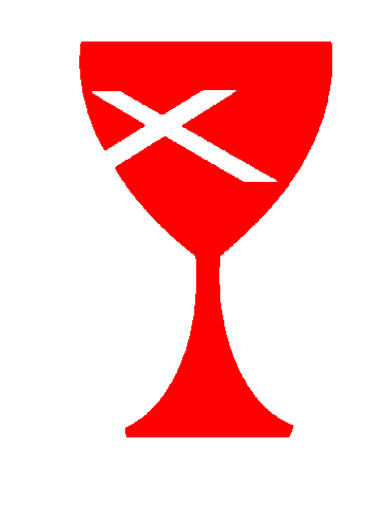Disciples & Theology
"The principle which was inscribed on our banners when we withdrew from the ranks of the sects was, 'Faith in Jesus as the true Messiah, and obedience to him as Lawgiver and King, the ONLY TEST of Christian character, and the ONLY BOND of Christian union, communion, and cooperation, irrespective of all creeds, opinions, commandments, and traditions of men." Alexander Campbell, one founder of the Christian movement in the nineteeth century.
The beginning of the Disciple and Christian movements of the nineteenth century was profoundly theological, even though the language was "atheological." From the beginning, we have been asked, "so what is it that you believe?" Thomas Campbell, Alexander Campbell, Walter Scott, and Barton Stone set in motion a new way of being church in North America. Free from the tyranny of the governments and churches in Europe, people were looking at building a new nation while getting back to the basics. Colonies were becoming religiously diverse, people were moving into the frontiers, and the old ways represented oppression and not liberty. The Christian and Disciple movements came to the frontiers in hope to establish a New Testament church and open the way for people to recieve Jesus the Christ without submitting to human traditions. Doing theology was a human endeavor, and therefore could never fully lead people to Jesus the Christ; however, it did inform them in interpretation (hermeneutics), education (catachisis), and cooperation (ecclesiology). Theology did not become a test of faith, it became the product of the faithful working to build the Kingdom.
Over the past two centuries, the Disciples of Christ, through grass root movements developed a tapeistry of faithful theology. From fundamentalism to liberalism, Disciples have taken on their own stances, defended them, and still practice them in the unity of Christ. Churches, such as ours, remained committed to the ideal of theological diversity and spiritual unity. It was said best by William Robinson, "Disciples have always been clear that schism is sin. Likewise, the plea for organic unity has been central to their message throughout their history. The problem of division cannot be evaded by contrasting the visible church and the invisible church or by claiming spiritual unity while neglecting questions of full communion. While the Disciples have been protestant in their witness to freedom, the priesthood of all believers, the stress on personal faith , and the centrality of the Holy Scriptures , they have also been catholic in the high doctrine of the church, the importance of the two sacraments of Baptism and the Lord's Supper, and the centrality of the Supper to Christian worship, a discipline which submits private judgement to the counsel of the church of all the ages, and the role given to reason and action over piety."
At First Christian Church, our desire is for you to find your way and life in Jesus the Christ. You are free to express your thoughts, opinions, and beliefs in fellowship with other believers who may have differing thoughts, opinions, and beliefs. We believe every person, through the Holy Spirit, can be an instrument of truth. God uses us according to our talents and gifts, not our diplomas and job titles. We are called to love God and others according to our personal faith--always maturing. We read Scripture seriously, but we do not always interpret Scripture in the same way. We celebrate our Baptism, even if we were baptised in other communities; and we come together around the Table in worship to show and receive grace in Jesus the Christ. The best way to know what this is about is just to come, participate, and see for yourself.

